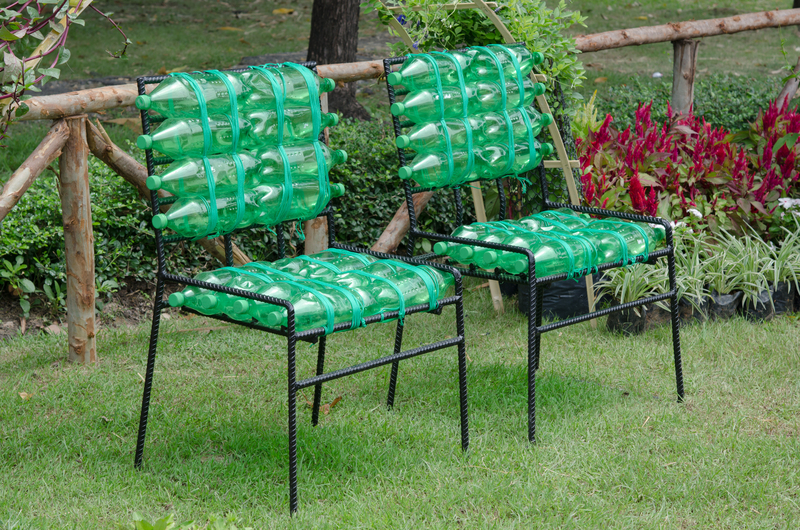Keys to a Cleaner World: Waste Clearance Services
In the modern age, waste clearance services have become indispensable to the mission of building a cleaner, healthier planet. Rising populations, rapid urbanization, and changing consumption patterns have dramatically increased the amount of waste generated globally. The efficient management, disposal, and recycling of this waste are essential for maintaining public health, conserving resources, and protecting our environment. In this comprehensive guide, we explore the keys to a cleaner world through waste clearance services, examining the types, benefits, challenges, and future of this crucial industry.
Understanding Waste Clearance Services
Waste clearance services encompass a range of activities aimed at the collection, removal, disposal, and recycling of unwanted materials. These services are provided to households, businesses, industries, and municipalities. Comprehensive waste management includes not only removal but also responsible sorting and treatment, ensuring that as much waste as possible is diverted from landfills.
Types of Waste Clearance Services
- Residential Waste Removal: Includes regular collection of household trash, recyclable materials, and bulky items like furniture or appliances.
- Commercial Waste Clearance: Businesses require clearing of office waste, packaging, e-waste, confidential documents, and more.
- Construction and Demolition Clearance: Involves collection and disposal of debris, bricks, concrete, and hazardous materials from building projects.
- Garden and Green Waste Clearance: Removal of organic matter, such as branches, leaves, soil, and landscaping remains.
- Hazardous Waste Management: Specialized handling and disposal of dangerous substances like chemicals, batteries, and asbestos.

The Importance of Waste Clearance for a Cleaner World
A robust waste clearance strategy is a cornerstone in achieving cleaner streets, healthier communities, and a greener environment. It affects several aspects of modern life, including public health, resource conservation, environmental protection, and even economic efficiency.
Public Health and Hygiene
Uncollected or improperly managed waste poses significant risks to public health. Accumulated garbage can become breeding grounds for rodents, insects, and other disease-carrying organisms. Inadequate disposal practices can contaminate soil and water supplies, resulting in disease outbreaks and long-term health consequences. Efficient waste clearance services remove these risks, ensuring safer living and working environments.
Environmental Protection and Recycling
Landfills are not only unsightly but also contribute to greenhouse gas emissions and groundwater pollution. By utilizing professional waste removal services that prioritize recycling and reuse, less waste is sent to landfills and incinerators. This reduces carbon footprint, conserves natural resources, and supports a more circular economy where products and materials are used again and again.
Resource Conservation
Proper waste clearance companies separate recyclables and compostable materials from the waste stream. Recycling aluminum, plastics, paper, and glass saves significant amounts of energy and raw materials compared to producing new products from scratch. Composting green waste returns valuable nutrients to the soil, supporting agriculture and landscaping without the need for chemical fertilizers.
Urban Aesthetics and Value
Clean, well-maintained environments attract residents, tourists, and businesses. They increase property values, lower crime, and uplift community spirits. A dependable waste clearance service ensures public spaces, parks, and streets remain attractive and safe for everyone.
How Waste Clearance Services Work
The process of waste removal is both straightforward and sophisticated, often involving specialized equipment, vehicles, trained staff, and sustainable disposal techniques. Here's an overview of how most professional clearance services operate:
1. Assessment and Booking
Clients contact a waste removal company online, by phone, or through an app. The service provider assesses the volume, type, and location of waste to provide an accurate estimate and arrange a suitable time for collection.
2. Collection and Sorting
On the scheduled date, the clearance team arrives with appropriate vehicles and equipment. They collect, sort, and load waste items, ensuring recyclables, hazardous materials, and ordinary rubbish are separated for the most responsible disposal.
3. Transportation
Collected waste is transported to authorized facilities - sorting centers, recycling plants, composting sites, or licensed disposal sites - depending on the material types.
4. Responsible Disposal
- Recyclable items are processed for new production cycles.
- Organic waste is sent for composting.
- General waste is typically landfilled or incinerated but always according to regulatory standards.
- Hazardous materials undergo special treatments to neutralize risks before safe disposal.
5. Documentation and Reporting
Many modern waste clearance services provide customers with documentation to ensure full compliance with environmental regulations and to demonstrate their eco-friendly practices.
Choosing the Right Waste Clearance Service
With so many options available, choosing an eco-friendly waste removal service can make a significant difference. Here are key factors to consider:
Sustainability Commitment
- Does the company recycle or divert waste from landfill?
- Do they partner with local recycling centers and charities?
- Are their vehicles and equipment energy efficient or low emission?
Licenses and Credentials
Only work with licensed waste clearance providers with proper insurance and regulatory compliance. This ensures legal disposal and protection from liability.
Transparency and Pricing
- Look for up-front, all-inclusive pricing models.
- Check for hidden fees, and make sure cost estimates align with the volume and type of rubbish.
- Read independent reviews and testimonials for reliability and customer service.
Community Impact
Modern waste clearance contractors often contribute to local charities, donate reusable goods, and hire from within the community. Supporting such businesses amplifies your positive impact.
Innovations in the Waste Clearance Industry
Driven by environmental concerns and technological advances, the waste management sector is witnessing exciting innovations:
- Smart Bins & Sensors: IoT-enabled bins indicate fill levels, optimizing collection routes and reducing unnecessary trips.
- Automated Sorting: Advanced machines and robots improve recycling rates by accurately sorting mixed waste streams.
- Eco-friendly Vehicles: Electric and hybrid waste collection trucks cut emissions and noise pollution in cities.
- Zero-Waste Initiatives: Increasingly, companies partner with towns and cities to help them achieve "zero-waste to landfill" targets.
- Mobile Apps and Digital Tracking: Technology allows for convenient booking, real-time updates, and better accountability.
Waste Clearance Services and the Circular Economy
A circular economy aims to keep materials in use for as long as possible through repeated cycles of reuse, repair, and recycling. Rubbish removal services play a vital role in realizing these goals by:
- Diverting materials from landfill through recycling and composting.
- Donating usable goods to charities or second-hand markets.
- Supporting responsible e-waste disposal and recovery of precious metals.
- Educating customers about waste separation and sustainable practices.
Challenges Facing Waste Clearance Services
Despite significant progress, the industry faces ongoing challenges that need to be addressed for a truly cleaner world through waste clearance:
- Complex Waste Streams: Mixed or contaminated loads can reduce recycling rates and drive up costs.
- Illegal Dumping: Fly-tipping remains a blight due to high landfill fees and lack of proper enforcement.
- Limited Infrastructure: Some regions lack advanced recycling or composting facilities, resulting in more waste sent to landfill.
- Hazardous Materials: Proper management and disposal require constant updates in training, regulations, and technology.
- Consumer Awareness: Public confusion about what can be recycled hinders effective waste management.

How You Can Contribute: Tips for a Cleaner World
While waste clearance companies are at the forefront, every individual and business can help create a cleaner world. Here are some practical tips:
- Reduce First: Buy only what you need, choosing products with less packaging.
- Reuse and Repair: Extend product life by repairing, donating, or repurposing items.
- Sort Your Waste: Clearly separate recyclables, organics, and hazardous items at the source.
- Choose Responsible Services: Work with eco-conscious waste clearance providers and ask about their disposal practices.
- Compost at Home: Turn kitchen scraps and yard trimmings into valuable compost for plants.
- Stay Informed: Learn your local recycling rules and keep up with new programs or changes.
The Future of Waste Clearance Services
As governments, businesses, and consumers become more invested in sustainability, the waste clearance sector will evolve further. Increased automation, better recycling technologies, stricter regulations, and greater public awareness promise a future where waste is minimized, and resources are used much more efficiently. Working together, we can transform the way we manage rubbish, moving ever closer to a cleaner, greener world.
Key Takeaways
- Professional waste clearance services are essential for public health, environmental protection, and resource conservation.
- Selecting responsible, sustainable waste removal companies can amplify your environmental impact.
- Technological advancements are making waste management more efficient and eco-friendly than ever before.
- Your actions--from reducing, reusing, to responsible sorting--can contribute to a world with less waste.
In conclusion, the keys to a cleaner world through waste clearance services lie in collective responsibility, informed choices, and continuous innovation. By supporting and utilizing reliable, sustainable waste management solutions, individuals and businesses alike can play their part in building a brighter, waste-free future for all.